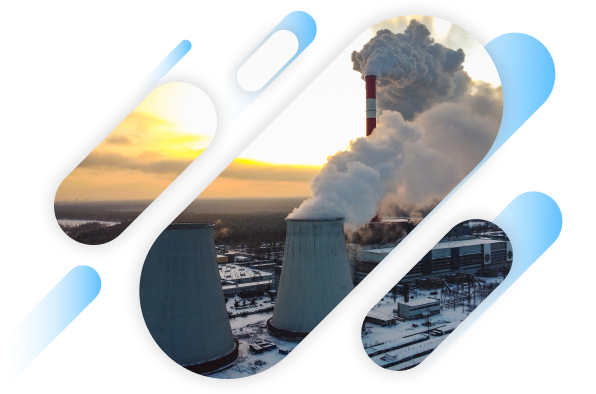Data Warehouse Consulting Services
We create solutions that collect data in one central location and ensure a single source, giving you a cohesive view of your company.
Let’s talk
We empower leaders:










Data warehouse provides reliable data ready to use
At Alterdata, we build data warehouses that quickly help turn data into business value for your company.

One source of truth in the organization
The data warehouse eliminates problems with data silos by integrating data from all sources into an easily accessible place. This way, the entire company benefits from the same, consistent, and up-to-date information, which is essential for effective business intelligence and data-driven decision-making.

Flexible and scalable solution
Start with low costs and expand the system when you need to. A cloud-based data warehouse adapts to growing data volumes, providing maximum efficiency at every stage of development.

Short time from project to implementation
We can launch a robust data warehouse within a few weeks of starting work. This allows your company to quickly gain a tool for data management and business process optimization.

Higher data quality
Efficient business relies on high-quality data. That’s why we focus on data management by cleaning, validating, and integrating your digital resources, creating a foundation for reliable analytics operations.

Greater company innovation
Using a cloud data warehouse gives you access to modern AI/ML solutions – applying them increases your company’s competitiveness and helps discover new growth opportunities.

Integrated data ecosystem
The cloud data warehouse easily integrates with BI, ERP, CRM, and other business systems, creating a unified ecosystem that supports decision-making processes with data-driven insights.
Discover more benefits of a scalable data warehouse
Let’s talkBuilding a data warehouse solution with a business-savvy partner
E-commerce, manufacturing, gaming, or finance – we create solutions tailored to the specifics of various sectors.
Knowledge and expertise at every stage:
Discovering business and technological needs together
We begin by understanding the organization’s goals, infrastructure, and data sources. Our experienced data warehouse consultants assess whether a data warehouse is the best solution, and if so, we define usage scenarios and select components tailored to the specifics of the company.
Selecting the platform and cloud tools
In a data warehouse project, we choose the best platform for achieving your goals from the solutions available on the market. We ensure it is highly scalable and functional while allowing for cost optimization.
Designing the architecture and model the data
We create a data model and design the processes of integration, transformation, and data loading (ETL/ELT), with a strong focus on data governance, data quality management, and the scalability of the final data warehouse.
Integrating the data and ensure its highest quality
Through data integration, data from various sources is combined, cleaned, and automated to enhance operational speed, ensure consistency, maintain timeliness, and meet client requirements.
Testing, optimizing, and training users
We conduct performance and accuracy tests, optimize the system to meet client requirements, and then train users so they can fully utilize the data warehouse’s capabilities from day one.
Supporting warehouse growth and upkeep
We monitor whether the data warehouse efficiently supports the company’s operations and achieves all established goals. If necessary, we optimize the system to ensure maximum efficiency and cost rationalization.

Discover our clients’ success stories

We helped Celsium build a data warehouse that reduced costs by PLN 180,000 per year
We integrated data from meters, SCADA, billing, and weather systems into a single data warehouse on Google Cloud Platform. We created advanced ETL processes, data quality control mechanisms, and dashboards in Tableau to support daily analysis of heat production and consumption.
The result? Meter failures detected in one day (previously one month), operational data updated three times a day, and significant savings thanks to heat source optimization and better demand balancing.

We built a modern data warehouse in GCP for PŚO
We helped Polski Światłowód Otwarty design and implement a scalable Data Lake architecture on Google Cloud Platform. We integrated 13 data sources, created automated ELT processes, access security, and a data model that serves as a single source of truth within the organization.
The result? Independence in reporting, rapid integration of new systems, readiness for future needs, and cost savings by eliminating on-premise infrastructure.

We helped AMS leverage data from DOOH media and maintain its position as a leader in outdoor advertising
We built a modern data ecosystem for AMS, a leader in OOH and DOOH advertising. We combined data from media, internal systems, Proxi.cloud, and CitiesAI to create a unified data warehouse in BigQuery with near real-time analysis.
The result? Data-driven targeting, campaign automation, better results for customers, and a stronger market position thanks to programmatic buying based on actual reach.

We helped Tutlo automate data integration and build a modern real-time ETL
In collaboration with the Tutlo team, we designed and implemented a data integration architecture based on serverless Google Cloud components. The system enables data synchronization from dozens of sources—including CRM—with full monitoring, CI/CD automation, and readiness for further scalability.
The result? A stable and flexible data ecosystem, ready for process automation, ML projects, and dynamic development of the educational platform.

We helped FunCraft forecast ROI and optimize UA budgets in the mobile gaming industry
We implemented a comprehensive BI solution for an American game studio, integrating data from Adjust, stores, and advertising platforms into the BigQuery warehouse. We built advanced dashboards in Looker Studio and predictive ROI models that enable accurate budget decisions—even with a long return on investment cycle.
The result? The FunCraft marketing team works faster, more efficiently, and with full control over their data.
We remove barriers to growth

Difficulties with data integration
Without a single source of truth, scattered data leads to inconsistencies, reporting delays, and inefficiencies. A well-designed Data Warehouse ensures seamless integration, accurate insights, and better decision-making.

Too much manual work with data
Manual work is time-consuming, inefficient, and prone to human error, which can significantly impact data quality. It also comes with high costs, making automation a crucial step toward accuracy and efficiency.

Silos and lack of data democratization
Separate reporting in each system means only the IT department has access to all reports.

Expensive on-premise infrastructure
A physical data warehouse involves high purchase costs. The financial entry threshold in the cloud is lower.

Lack of advanced analytics
Without Business Intelligence or predictions offered by Machine Learning models, you waste the potential of your data.

Lack of reliable data
Data is incomplete, inconsistent, or contains errors, making it impossible to rely on them in your decision-making processes.

Insufficient expertise
Your company lacks experts and knowledge on how to design and build a data warehouse from scratch.

Limited scalability
The performance of your solution cannot keep up with the growing needs of processing larger volumes of data.
Why Data Warehouse Consulting
with Alterdata?
End-to-end implementation
We offer data warehousing services , guiding solution selection, rapid construction, and efficient cloud deployment.
Additionally, our comprehensive data warehouse support ensures ongoing maintenance, optimization, and feature enhancements for long-term efficiency and scalability.
Wide tech stack
Our experts select modern and efficient technologies that best align with developmental goals.
This approach ensures an effective data warehouse implementation, creating platforms perfectly tailored to client needs.
Team of professionals
Our engineers, data analysts, and data warehouse consultants have knowledge and experience in implementations across various industries.
For projects, we select specialists who understand your requirements.
Tailored services
We create cloud data warehouses precisely adjusted to your requirements and budget.
We consider your industry, company size, goals, and other critical factors.
Data team as a service
You receive support from a dedicated team of data warehousing experts, available whenever you need them.
This also includes assistance in expanding your architecture and training your employees.
Data security
We work within your environment and do not extract any data, implementing strict measures to ensure data security.
You decide which information we have access to during our work.
Looking for a data warehouse migration experts?
Tech stack: the foundation of
our work
Discover the tools and technologies that power the solutions created by Alterdata.

Google Cloud Storage enables data storage in the cloud and provides high performance, offering flexible management of large datasets. It ensures easy data access and supports advanced analytics.

Azure Data Lake Storage is a service for storing and analyzing structured and unstructured data in the cloud, created by Microsoft. Data Lake Storage is scalable and supports various data formats.

Amazon S3 is a cloud service for securely storing data with virtually unlimited scalability. It is efficient, ensures consistency, and provides easy access to data.

Databricks is a cloud-based analytics platform that combines data engineering, data analysis, machine learning, and predictive models. It processes large datasets with high efficiency.

Microsoft Fabric is an integrated analytics environment that combines various tools such as Power BI, Data Factory, and Synapse. The platform supports the entire data lifecycle, including integration, processing, analysis, and visualization of results.

Google BigLake is a service that combines the features of both data warehouses and data lakes, making it easier to manage data in various formats and locations. It also allows processing large datasets without the need to move them between systems.

Google Cloud Dataflow is a data processing service based on Apache Beam. It supports distributed data processing in real-time and advanced analytics.

Azure Data Factory is a cloud-based data integration service that automates data flows and orchestrates processing tasks. It enables seamless integration of data from both cloud and on-premises sources for processing within a single environment.

Apache Kafka processes real-time data streams and supports the management of large volumes of data from various sources. It enables the analysis of events immediately after they occur.

Pub/Sub is used for messaging between applications, real-time data stream processing, analysis, and message queue creation. It integrates well with microservices and event-driven architectures (EDA).
Google Cloud Run supports containerized applications in a scalable and automated way, optimizing costs and resources. It allows flexible and efficient management of cloud applications, reducing the workload.

Azure Functions is another serverless solution that runs code in response to events, eliminating the need for server management. Its other advantages include the ability to automate processes and integrate various services.

AWS Lambda is an event-driven, serverless Function as a Service (FaaS) that enables automatic execution of code in response to events. It allows running applications without server infrastructure.

Azure App Service is a cloud platform used for running web and mobile applications. It offers automatic resource scaling and integration with DevOps tools (e.g., GitHub, Azure DevOps).

Snowflake is a platform that enables the storage, processing, and analysis of large datasets in the cloud. It is easily scalable, efficient, and ensures consistency as well as easy access to data.

Amazon Redshift is a cloud data warehouse that enables fast processing and analysis of large datasets. Redshift also offers the creation of complex analyses and real-time data reporting.
BigQuery is a scalable data analysis platform from Google Cloud. It enables fast processing of large datasets, analytics, and advanced reporting. It simplifies data access through integration with various data sources.

Azure Synapse Analytics is a platform that combines data warehousing, big data processing, and real-time analytics. It enables complex analyses on large volumes of data.

Data Build Tool simplifies data transformation and modeling directly in databases. It allows creating complex structures, automating processes, and managing data models in SQL.

Dataform is part of the Google Cloud Platform, automating data transformation in BigQuery using SQL query language. It supports serverless data stream orchestration and enables collaborative work with data.
Pandas is a data structure and analytical tool library in Python. It is useful for data manipulation and analysis. Pandas is used particularly in statistics and machine learning.

PySpark is an API for Apache Spark that allows processing large amounts of data in a distributed environment, in real-time. This tool is easy to use and versatile in its functionality.

Looker Studio is a tool used for exploring and advanced data visualization from various sources, in the form of clear reports, charts, and interactive dashboards. It facilitates data sharing and supports simultaneous collaboration among multiple users, without the need for coding.

Tableau, an application from Salesforce, is a versatile tool for data analysis and visualization, ideal for those seeking intuitive solutions. It is valued for its visualizations of spatial and geographical data, quick trend identification, and data analysis accuracy.

Power BI, Microsoft’s Business Intelligence platform, efficiently transforms large volumes of data into clear, interactive dashboards and accessible reports. It easily integrates with various data sources and monitors KPIs in real-time.

Looker is a cloud-based Business Intelligence and data analytics platform that enables data exploration, sharing, and visualization while supporting decision-making processes. Looker also leverages machine learning to automate processes and generate predictions.
Terraform is an open-source tool that allows for infrastructure management as code, as well as the automatic creation and updating of cloud resources. It supports efficient infrastructure control, minimizes the risk of errors, and ensures transparency and repeatability of processes.

GCP Workflows automates workflows in the cloud and simplifies the management of processes connecting Google Cloud services. This tool saves time by avoiding the duplication of tasks, improves work quality by eliminating errors, and enables efficient resource management.

Apache Airflow manages workflows, enabling scheduling, monitoring, and automation of ETL processes and other analytical tasks. It also provides access to the status of completed and ongoing tasks, as well as insights into their execution logs.
Rundeck is an open-source automation tool that enables scheduling, managing, and executing tasks on servers. It allows for quick response to events and supports the optimization of administrative tasks.

Python is a programming language, also used for machine learning, with libraries dedicated to machine learning (e.g., TensorFlow and scikit-learn). It is used for creating and testing machine learning models.

BigQuery ML allows the creation of machine learning models directly within Google’s data warehouse using only SQL. It provides a fast time-to-market, is cost-effective, and enables rapid iterative work.

R is a programming language primarily used for statistical calculations, data analysis, and visualization, but it also has modules for training and testing machine learning models. It enables rapid prototyping and deployment of machine learning.

Vertex AI is used for deploying, testing, and managing machine learning models. It also includes pre-built models prepared and trained by Google, such as Gemini. Vertex AI also supports custom models from TensorFlow, PyTorch, and other popular frameworks.

Bartosz Szymański
Data Strategy and Customer Relations Director
Your data holds potential.
Ask us how to unlock it
FAQ
How can I measure the results of implementing a new data warehouse?

You can measure the results of a data warehouse built by Alterdata by observing improvements in data processing speed, reduced report generation time, and increased availability and reliability of the new cloud system. You will also notice enhanced integration of data from various systems, greater consistency, and improved usability in decision-making processes.
Can I integrate a cloud-based data warehouse with existing systems and analytical tools?

Yes, Alterdata builds data warehouses using the best cloud technology providers, designing them to seamlessly integrate with ERP and CRM systems, marketing automation tools, as well as BI and ETL platforms. Our dedicated connectors ensure fast and efficient integration of the data warehouse with various corporate systems.
Is building a data warehouse profitable for a small or medium-sized company?

Yes, cloud data warehouses are not reserved exclusively for large organizations, and any business aiming to grow by leveraging data will benefit from their implementation. A central repository eliminates manual work in combining data, saves time, reduces the risk of errors, and allows you to focus not on organizing data but on drawing insights from it.
Do I need any specific expertise in my organization for this service?

You don’t need to have specialized expertise within your organization. Our team will handle the implementation comprehensively and provide appropriate training for your team.
Does the external data engineer have access to all the information in our company?

We ensure complete data security. Access to information is strictly controlled, and our experts only have access to the data necessary for the project, adhering to the highest protection standards. We do not extract data; it is stored exclusively on the client’s side.
How will we manage maintaining two solutions?

We provide support for managing both on-premises and cloud solutions during the transition period. We develop a strategy that minimizes disruptions to your business operations.
Will the new technologies be compatible with our technology?

Our solutions are compatible with both existing and future technologies. We adapt to your requirements, ensuring flexibility and scalability
Is the company technologically objective and will it consider our technology preferences?

Alterdata is technologically independent. Our data warehouse consultants provide recommendations based on your preferences and the best solutions available on the market, ensuring optimal effectiveness and alignment with your requirements. While we partner with many technology providers, we do not sell their products. This gives us maximum objectivity in selecting the most suitable technology to solve your problem.

























